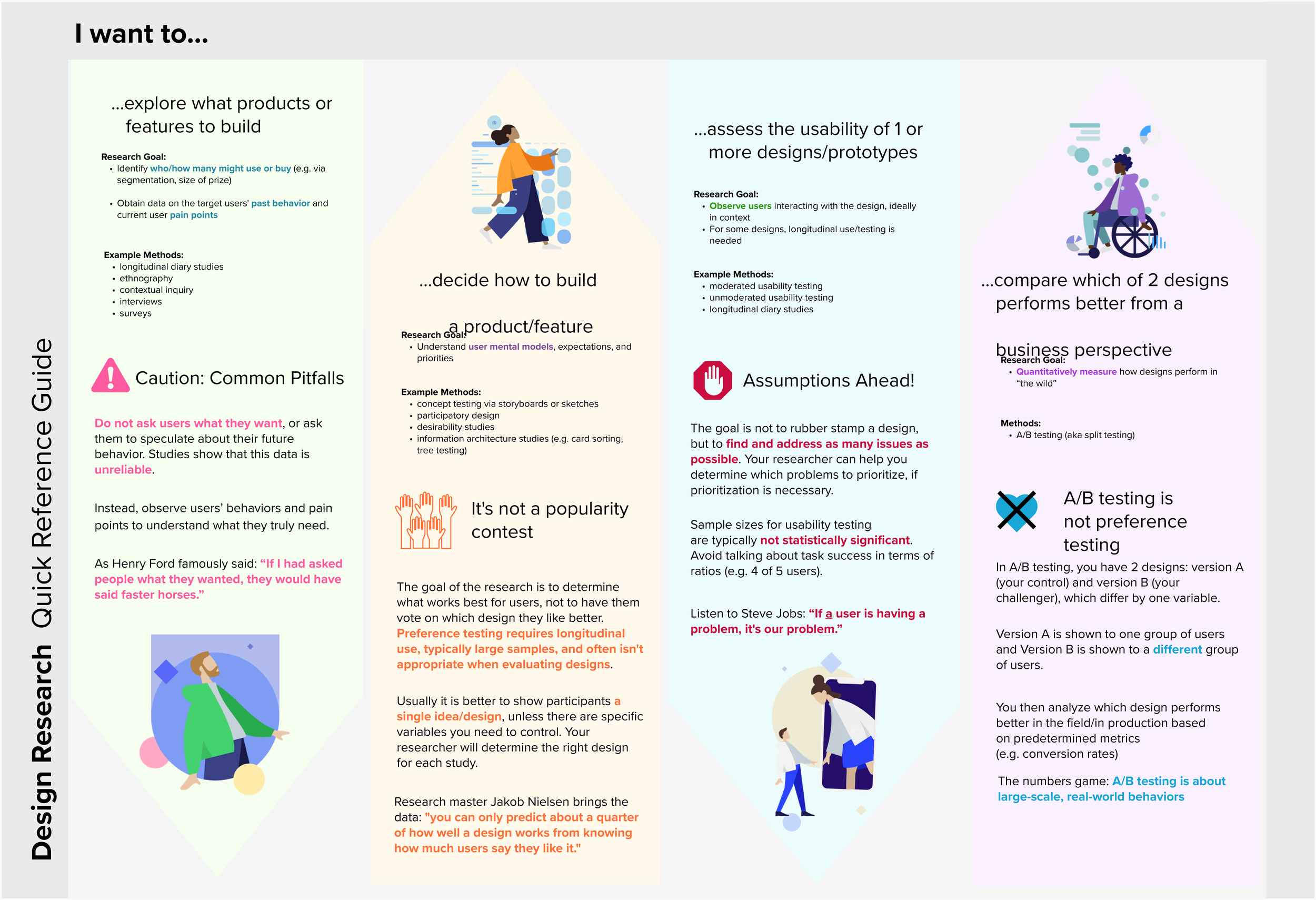There are few topics as universally debated within UXR and CXR circles as “democratization of research”.
Unbiased, thorough, actionable research requires expertise. But often dedicated researchers are added to more mature teams, after other folks (designers, product managers, marketers) have been doing double duty to fill the gap. And once researchers are on the team, they might not be able to cover all of the research requested by stakeholders across the business. So what do we do? If we encourage other roles to take on some research, are we devaluing our own specialized knowledge and skills? Or is this a necessary part of getting questions answered?
My perspective is that there are levels of research:
Are the goals structured and straightforward, or more nebulous?
How do the outcomes of the research impact business risk? Are those factors long- or short-term?
Are any stakeholders on the project in a research-adjacent field, where they have had some anti-bias training?
I believe that in many cases, my partners in other parts of the organization are capable of executing some research tasks and ultimately the business benefits from more consumer feedback when possible. I use questions like the ones above to help us determine whether a particular request is a good candidate for a non-researcher to take on, or whether we need to roll out the specialists.

As part of my role leading research strategy, I worked closely with the user experience, industrial design, and product management teams to provide coaching on research fundamentals and avoiding bias when eliciting feedback. This included a mix of group workshops, building documentation and templates, and individual coaching for specific projects. Not everyone wants to step into the spotlight, but in my experience when stakeholders are open to the possibility and willing to work with us they can be effective hands-on partners.
As a bonus, going through our team’s “certification” process builds empathy - I’ve heard multiple times from colleagues that they never realized how much went into moderating a session, or setting up an unmoderated usability test, until they tried it themself. To me that’s a win all by itself!
Artifacts from building a (slightly) democratic research network:
What’s the right kind of research? overview diagram (above)
Talking to Users workshop (below)
UserTesting templates, training documentation, and recorded Zoom trainings (below)



